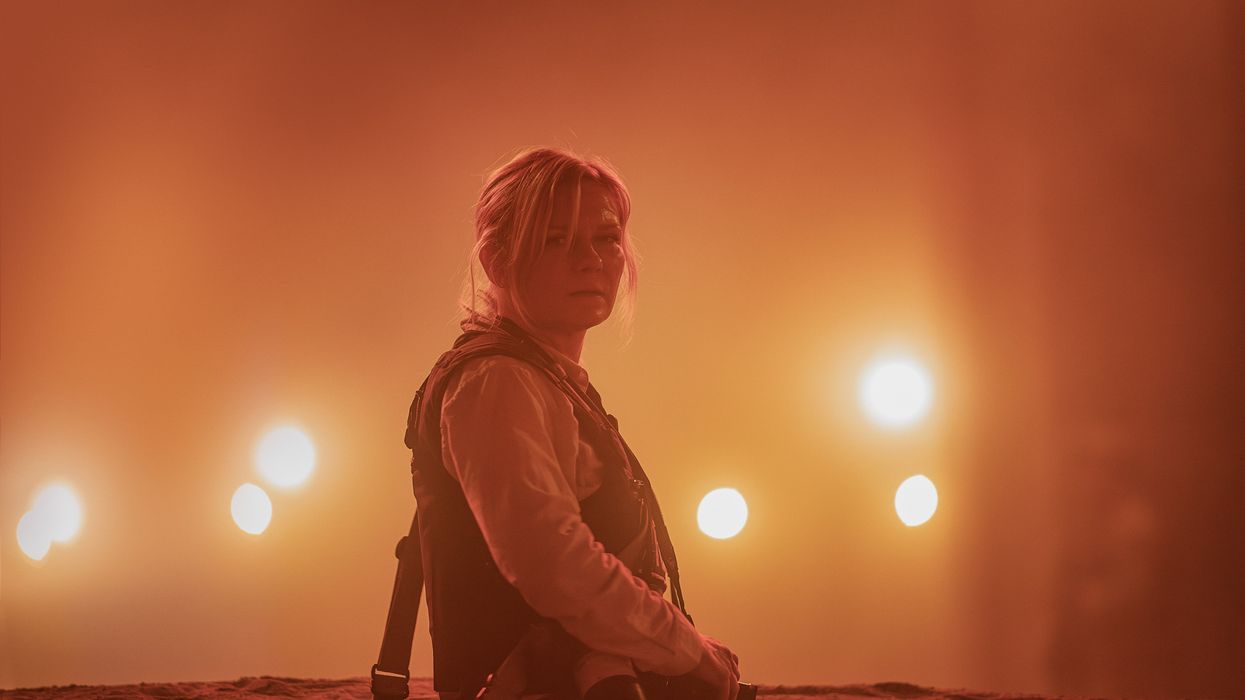Becvar is co-publisher of The Fulcrum and executive director of the Bridge Alliance Education Fund.
In an election year where the air crackles with political tension, the arrival of Alex Garland's film "Civil War" has sparked a broad spectrum of reactions. The movie presents a dystopian vision of a fragmented United States where various factions are at war. This narrative, while unsettling, offers us a valuable lens through which to examine our current political climate and the essential work ahead for those committed to reinforcing the bedrock of our democracy.
The essential role of journalism
At its heart, "Civil War" eschews partisan politics – it meticulously avoids taking any “sides” in a real or fictional political world. Instead, it focuses on a group of journalists navigating a war-torn America, serving as a potent reminder of trusted journalists' critical role in a democracy in providing objective truth. Putting war journalists as neutral observers central to the narrative also anchors the film in neutrality. Through their lenses, we witness the chaos of war — stripped of bias, unburdened by allegiance.
Garland's decision to set this dystopia in eerily familiar American settings magnifies the impact. Photojournalists' shots juxtaposing the remnants of past “normalcy” with the current horrors of war serve to thrust the audience into the visceral truth that war, for Americans long something geographically distant, can become an intimate terror.
A stark warning against political violence
American political violence and war are real concerns that some may not just believe likely but mistakenly think necessary. Eighty-three percent of Americans are concerned about political violence, and 15 percent of Republicans and 20 percent of Democrats say the country would be better off if large numbers of opposing partisans "just died." Four in 10 Americans believe a new civil war is "at least somewhat likely in the next ten years."
But the brutality of this film serves well as a cautionary tale for just a slight glimpse into what that could look like. In an interview Tuesday evening, Garland stated that that is the point: He wants the audience to suddenly feel a really deep, instinctive sense of aversion — of being appalled. For me, it was a mission accomplished.
Reflections from the cast
The concerns raised about the film's release during an election year highlight the delicate balance between artistic expression and its impact on societal discourse. While some argue that portraying a nation at war with itself might amplify existing tensions, others see it as an urgent call to reflect on our collective path forward. Kirsten Dunst, one of the film's stars, reflects on this balance, echoing the director in suggesting that the film, in its essence, is an anti-war message, urging viewers to contemplate the consequences of unchecked division and to reconsider the direction in which we are heading.
Other cast members have spoken about how the film has affected them — compelling them to want to take action. Wagner Moura said, "Now I'm really making an effort to sit down and listen to people that I disagree [with]. And I was absolutely surprised to see that if you value democracy, if you think that democracy is an important thing, then there's lots of common ground." We know that Moura's observation is accurate — research from More in Common on the “perception gap” shows that we are not nearly as divided as we think.
A pivot, not a prophecy
Though fictional, the movie's backdrop aligns with concerns raised by thought leaders and advocates within our network regarding the erosion of democratic norms and the rise of authoritarian tendencies fueled by polarization. Regardless of whether this movie was released in 2024 - or at all - we would still be in a divisive and potentially violent time in our politics and history.
Perhaps the film can catalyze discussions about these challenges to a broader swath of Americans - prompting us to reflect on our values, our responsibilities as citizens, and the importance of upholding a democracy that is inclusive, resilient, and truly representative of all its people. Let "Civil War" not be a prophecy of our future but a pivot point towards a more united, democratic society.
If you plan on seeing the film and would like to join a deeper discussion, please join us for a film dialogue event on April 20 at 4 pm PT (7 pm ET). Register here.




















Trump & Hegseth gave Mark Kelly a huge 2028 gift